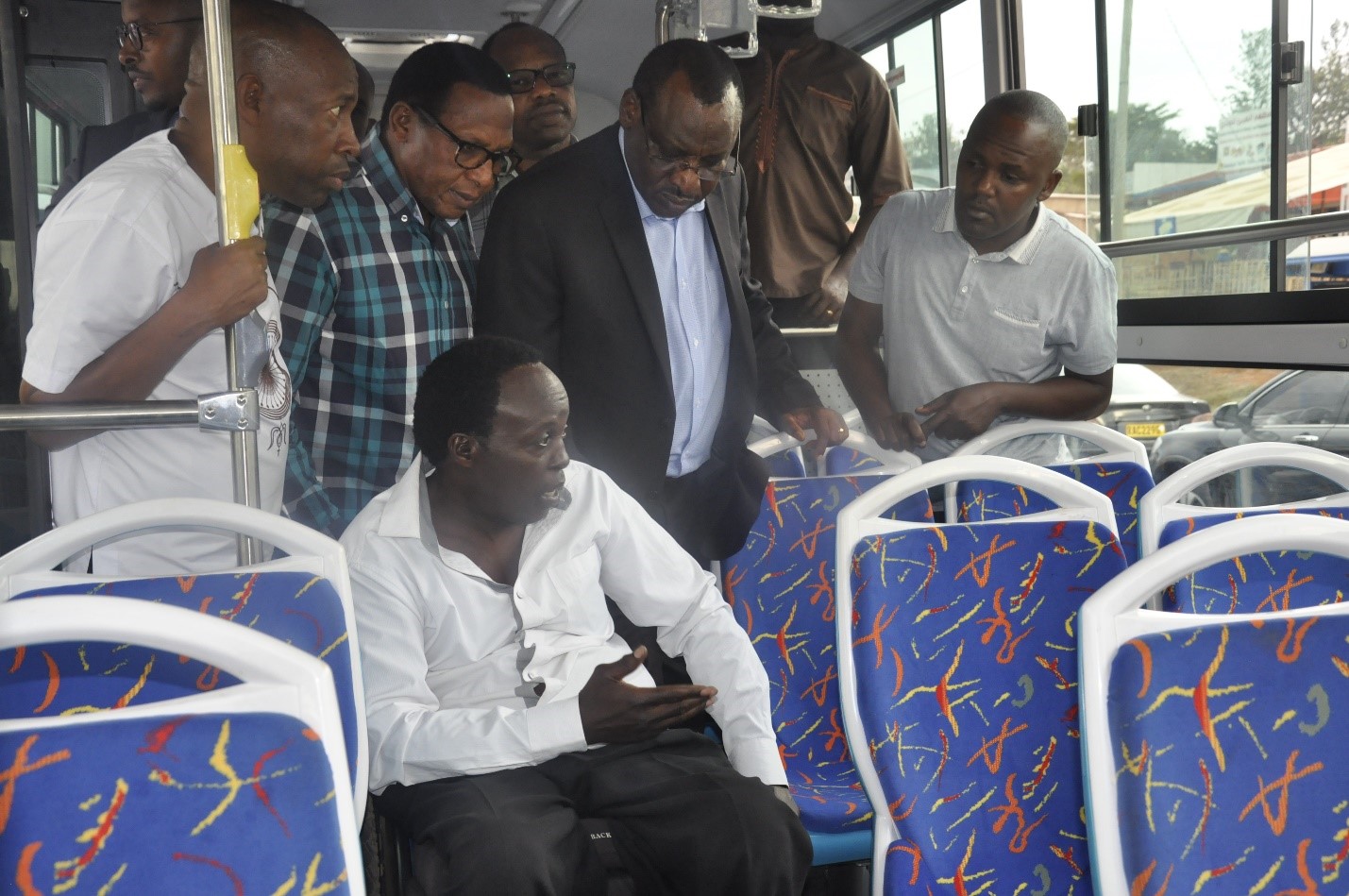Kigali, 30th August, 2019- Public transport in Rwanda is now more convenient for people with disabilities with the introduction of friendly buses that are equipped with facilities for people with disabilities. Rwanda Federation of Transport Cooperatives (RFTC) purchased 11 buses from China that are designed to enable people with disabilities to board and disembark without having assisted.
RFTC ltd has invested 1billion Rwandan Francs to pilot this project, but the ultimate goal is to allocate more resources and serve the whole country. “We want persons with disability to start enjoying friendly and accessible public transport in the entire public transport system”. Highlighted Jali Holdings Ltd Executive Chairman, Col (Rtd) Louis Dodo Twahirwa, on Friday, to the official launch of above mentioned buses.
According to the Minister of Infrastructure (MININFRA), Honorable Clever GATETE, the public transport policy and strategy was designed to ensure universal public transport services for all citizens irrespective of age, sex, caste, creed, and ability to perform in the society, and should also ensure access to all modes of transport for infirm, disabled and elderly people. This will be done by promoting the development of a transport system that is inclusive and accessible to all countrywide.
Although significant achievements have been registered in developing transport infrastructure, the issue of providing adequate transport services is still a bottleneck. It is not possible to ensure door-to door mobility and accessibility of people and goods, which is key to economic growth, without development of an integrated public transport service. The Government vision is to support the existing public transport companies on short, medium and long term basis to attain the required level service delivery to intercity, rural, international and urban public transport systems.
Currently, transport sector contributes about 7% to the GDP, and represents 15% of total service delivery. Most of the transport infrastructure in the national economy has been continuously growing since 1995, and is expected to grow further by putting strategic programmes and projects in place. Minister Gatete emphasized.
In rapidly changing global economy, transport sector contributes to employment and wealth creation hence poverty reduction, economic growth, and serves as support to other economic sectors.
Public transport policy implementation is done in accordance with the government’s policy on gender, bringing a far reaching positive impact on equality, unity and reconciliation efforts to the entire society. The government will continue fording partnership with private sector and other sector players to embed the concept of universal accessibility in the formulation of transport policies, regulations and practice.
Public transport operates in zones, where RFTC operates in zone III & IV with a fleet of more than 220 buses. The new buses will be operating in various routes in the city and for long-term goal is to invest more resources and meet our target to provide these services countrywide. We therefore encourage beneficiaries to use these buses because they have all facilities that enable to move without seeking the help from others.” Col. Dodo added

 ENGL
ENGL KINY
KINY